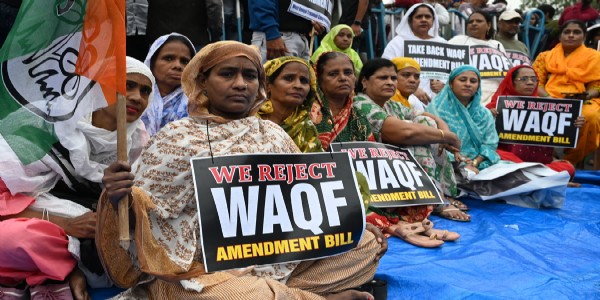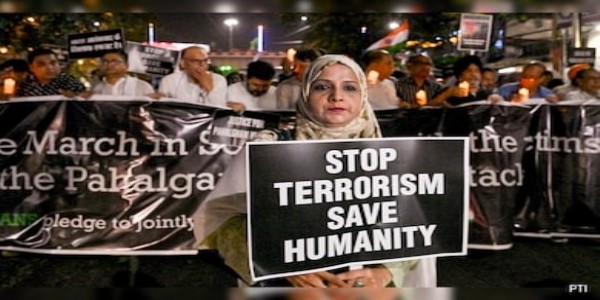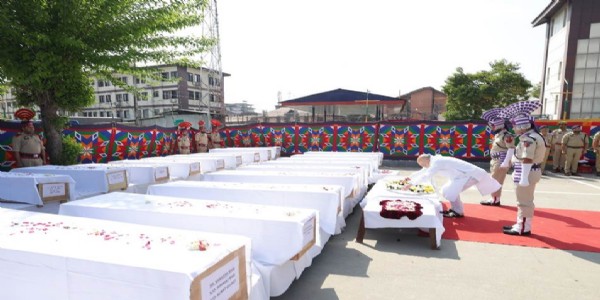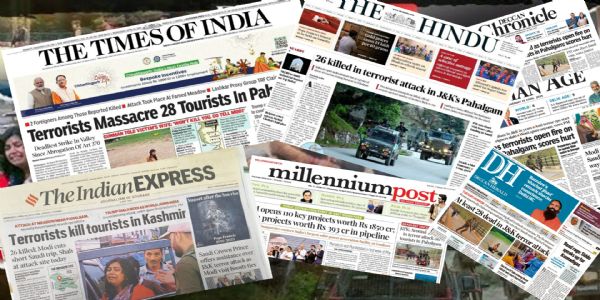Vacate occupied territories & stop cross-border terrorism: India roasts Pakistan for raking up Kashmir at UNGA
Total Views | 84
New Delhi, Sept 23: India slammed Pakistan at the United Nations General Assembly, demanding an end to cross-border terrorism, the dismantling of terror infrastructure, and the vacating of Pakistan-occupied Jammu and Kashmir (PoK). This came after Pakistan’s interim prime minister, Anwar Ul Haq Kakar, once again raked up the Kashmir issue during his address at the 78th session of the United Nations General Assembly (UNGA) in New York.
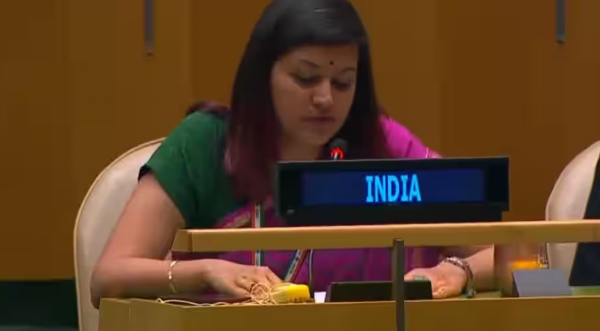
India fielded young woman diplomat Petal Gahlot to condemn Islamabad for repeatedly exploiting global platforms to disseminate anti-India narratives. India asserted that Jammu and Kashmir is an integral part of India, and Pakistan had no locus standi to comment on the issue.
What did India say?
“Pakistan has become a habitual offender when it comes to misusing this forum to peddle baseless and malicious propaganda against India. Member states of the UN and other multilateral organisations are well aware that Pakistan does so to deflect the international community’s attention away from its own abysmal record on human rights," she said.
Petal Gahlot said, “We reiterate that the Union Territories (UTs) of Jammu and Kashmir are an integral part of India. Matters pertaining to the UTs of Jammu and Kashmir and Ladakh are purely internal to India. Pakistan has no locus standi to comment on our domestic matters.”
VIDEO | “We reiterate that the Union Territories of Jammu and Kashmir are an integral part of India. Matters pertaining to the UTs of J&K and Ladakh are purely internal to India. Pakistan has no locus standi to comment on our domestic matters. As a country with one of the world’s… pic.twitter.com/71IL0XFNyV
— Press Trust of India (@PTI_News) September 23, 2023
Gahlot further added, “In order for there to be peace in South Asia, the actions that Pakistan needs to take are threefold. First, stop cross-border terrorism and shut down its infrastructure of terrorism immediately. Second, vacate Indian territories under its illegal and forcible occupation. And third, stop the grave and persistent human rights violations against the minorities in Pakistan.”
The diplomat emphasised that Pakistan should undertake credible and verifiable measures against those responsible for the 2008 Mumbai terror attacks rather than engaging in technical sophistry. Addressing Pakistan’s concerning human rights record, Petal Gahlot pointed out instances of assaults on minority communities in Pakistan.
She said, “As a country with one of the world’s worst human rights records, particularly when it comes to minority and women’s rights, Pakistan would do well to put its own house in order before venturing to point a finger at the world’s largest democracy. A glaring example of the systemic violence against minorities in Pakistan was the large-scale brutality perpetrated against the minority Christian community in Jaranwala, in Pakistan’s Faisalabad District in August 2023, where a total of 19 churches were gutted and 89 Christian houses were burnt down.”
She added, “The condition of women belonging to minority communities in Pakistan, notably Hindu Sikhs and Christians, remains deplorable. According to a recent report published by Pakistan’s own Human Rights Commission, an estimated 1,000 women from minority communities are subjected to abduction, forced conversion and marriage in Pakistan every year. Pakistan has been the home and patron to the largest number of internationally prescribed terrorist entities and individuals in the world.”
What did Pakistan say?
Earlier in the day, interim Pakistani Prime Minister Kakar delivered his speech at the 78th session of the United Nations General Assembly in New York. "Global powers should convince New Delhi to accept Pakistan's offer of mutual restraint on strategic and conventional weapons," he said during his address.
"Development depends on peace. Pakistan is situated in the least economically integrated region in the world. Pakistan believes that regions develop together therefore [the country] desires peaceful and productive relations with all neighbours, including India," he said.
Kakar also called on the UN Security Council to oversee that the resolutions on Kashmir are being followed. He continued by saying that the United Nations Military Observer Group for India and Pakistan (UNMOGIP) should be "reinforced".
"Pakistan desires peaceful and productive relations with all our neighbours, including India. Kashmir is the key to peace between Pakistan and India," he said.
New Delhi's stance on Jammu and Kashmir and Ladakh
India has clarified that both the regions were, are and will always remain an integral part of India. Even India wants peaceful relations with Pakistan however the country has made clear that it will only be possible when Pakistan take action against terrorism breeding from its soil.
This is not the first time Pakistan has used a multilateral institution like UNGA to raise the Kashmir issue.
The relationship between India and Pakistan plunged to a new low after New Delhi abrogated Article 370 of the Constitution to overrule the special status of Jammu and Kashmir on August 5, 2019.
Bharati Web




